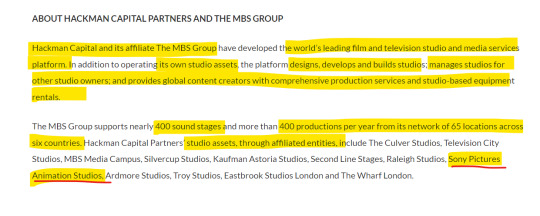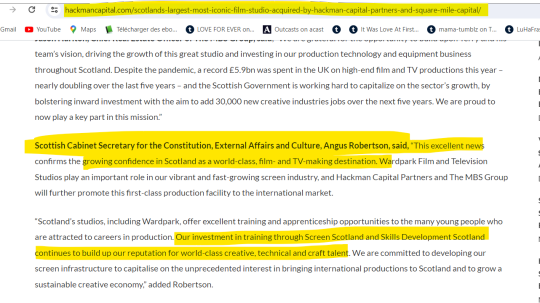#manufacturing staffing agency
Text
The Remote Revolution: Strategies for Recruiting Best IT Talent from Anywhere in the World
The remote work revolution has transformed the IT industry, allowing companies to hire top talent from anywhere in the world. This shift presents new opportunities and challenges for IT hiring agencies. In this blog, we explore strategies for hiring top IT talent globally and the benefits it brings to organizations.
The Advantages of Global Hiring
Hiring IT talent from around the world offers several benefits:
1. Access to a Diverse Talent Pool:
● Global hiring expands the talent pool, allowing companies to find highly skilled professionals regardless of geographic location.
2. Cost Savings:
● Hiring remote workers can reduce overhead costs associated with office space, utilities, and in some cases, salaries.
3. Increased Flexibility:
● Remote work offers flexibility for employees, leading to higher job satisfaction and retention rates.
4. 24/7 Productivity:
● With team members in different time zones, companies can achieve continuous productivity and faster project turnaround times.
Strategies for Hiring Top IT Talent Globally
1. Utilize Global Job Boards:
● Post job openings on global job boards and platforms such as LinkedIn, Indeed, and Glassdoor to reach a wider audience.
2. Leverage Remote Work Platforms:
● Use remote work platforms like Remote.co, We Work Remotely, and FlexJobs to connect with professionals who are specifically looking for remote opportunities.
3. Partner with Local Recruiters:
● Collaborate with local recruiters in target regions to tap into their networks and gain insights into the local talent market.
4. Offer Competitive Compensation and Benefits:
● Provide competitive compensation packages that align with global standards. Include benefits such as health insurance, paid time off, and professional development opportunities.
5. Implement a Robust Onboarding Process:
● Develop a comprehensive onboarding process to help remote hires integrate smoothly into the company culture and understand their roles and responsibilities.
6. Focus on Skills and Experience:
● Prioritize skills and experience over location. Use skills assessments and technical interviews to evaluate candidates' abilities.
7. Embrace Asynchronous Communication:
● Encourage asynchronous communication to accommodate different time zones and work schedules. Use collaboration tools like Slack, Trello, and Asana to facilitate communication and project management.
8. Build a Strong Employer Brand:
● Develop a strong employer brand that highlights your commitment to remote work and your company’s values. This will attract top talent who are looking for reputable and forward-thinking employers.
9. Foster a Remote-Friendly Culture:
● Create a remote-friendly culture that promotes flexibility, autonomy, and work-life balance. Encourage team bonding through virtual social events and regular check-ins.
10. Provide Continuous Learning Opportunities:
● Offer continuous learning and development opportunities to help remote employees stay updated with the latest industry trends and technologies.
Challenges and Solutions
1. Time Zone Coordination:
● Solution: Use scheduling tools and plan meetings at mutually convenient times. Encourage asynchronous work to reduce the need for real-time communication.
2. Communication Barriers:
● Solution: Implement clear communication protocols and use multiple channels to ensure effective communication.
3. Cultural Differences:
● Solution: Promote cultural awareness and sensitivity through training and team-building activities.
4. Security Concerns:
● Solution: Implement robust cybersecurity measures and provide training to remote employees on best practices for data protection.
Conclusion
The remote revolution has opened up new possibilities for hiring top IT talent from around the world. By implementing strategies such as utilizing global job boards, partnering with local recruiters, offering competitive compensation, and fostering a remote-friendly culture, IT hiring agencies can successfully attract and retain the best talent. Embracing the remote work model not only provides access to a diverse talent pool but also enhances flexibility, productivity, and job satisfaction.
#it staffing agency#it recruitment agency#manufacturing recruiting firms#manufacturing recruitment agencies#it staffing services#it placement agencies#it hiring agencies#it employment agency#manufacturing staffing agency#it recruiting firms
0 notes
Link
LocalSkill; best Staffing Firms & Recruitment Relief Agency help you to find services for all sectors from Pharmacy, Manufacturing, IT in Ontario Canada, Michigan USA.
#it staffing firms#it placement agencies#it jobs staffing agency#it jobs recruitment agency#it job placement agencies#it hiring agencies#best it recruitment agencies#best it recruiting firms#it employment agency#it staffing services#it recruitment agency#it staffing agency#manufacturing staffing agency#it recruiting firms#relief pharmacist ontario#pharmacy recruiters#manufacturing recruitment agencies#manufacturing recruiting firms#pharmacy relief staffing#pharmacy staffing services#pharmacist recruiting agency
1 note
·
View note
Video
undefined
tumblr
Leadership Skills that you Should take into 2023
Leadership Skills that you Should take into 2023
Specialized Recruiting Group, an Express Employment Professionals company, takes an individualized approach to professional search and placement services. We are a leading Accounting and Finance staffing provider helping professionals find their next career move. With a focus on positions like Controllers, Senior Accountants, Internal Auditors, Tax Professionals, Full Charge Bookkeepers, and many others, we can help you find your next professional position in Central Phoenix, Arizona.
Specialized Recruiting Group of Central Phoenix
4001 N 3rd St Ste 440,
Phoenix, AZ 85012
(602) 344-3110
www.expresspros.com/PhoenixCentralAZSRG/
#Corporate Staffing#Finance Job Recruiters#HR Recruitment Agencies#Manufacturing Placement#Marketing Job Openings#Phoenix#Arizona
0 notes
Text

Best Staffing Agency in Charleston, SC
Since 2019, Eastern Staffing & Recruiting has been a top employment agency in Charleston, South Carolina. We have had the pleasure of working with many expanding clients within the engineering, automation, warehouse/distribution, and technology fields.
We Service all of South Carolina with temp, contract to hire, and direct hire staffing & recruiting – Charleston, North Charleston, Daniel Island, Ladson, Greenville, John’s Island, Mount Pleasant, Hilton Head Island, Goose Island, Summerville, Ladson, Orangeburg, and Myrtle Beach.
https://HireEastern.com
#legal jobs#manufacturing jobs#tech jobs#finance jobs#engineering jobs#sales jobs#marketing jobs#recruiting jobs#field service engineering jobs#temp services#direct hire recruiting#staffing agency#temp staffing agency#south carolina staffing agency#charleston staffing agency#charleston employment agency#recruiting#security clearance jobs#charleston software development jobs#maintenance jobs#manufacturing recruiting#engineer recruiting#food service jobs#food service recruiting#food service staffing#north charleston staffing agency#ladson staffing agency#top staffing company north charleston#daniel island staffing agency#greenville staffing agency
0 notes
Text
A word on Wardpark/Cumbernauld Studios
@docsama left a comment, on S's birthday, under one of my posts and I promised her an answer with more information, as soon as I got the time. Anyway, here goes - and @docsama, sorry for the delay:

Question is: who owns the Wardpark Film and Television Studios?
The answer was quick to find, in the not-so-old specialized media:


The story begins in 2013, with an ambitious Scottish entrepreneur, Terry Thomson - this guy (courtesy of The Herald, https://www.heraldscotland.com/news/15984820.analysis-three-projects-pipeline-help-productions-make-big-picture/):

He is the owner of the Thomson Pettie Group, based in Carluke (https://www.thomsonpettie.com/about-us), which has nothing to do with cinema:

You've read that right: they are 'manufacturers of fabricated metal parts and assemblies', primarily for the national automotive industry. Yet, in 2013, Mr. Thomson agreed to rent what he described as 'a dormant industrial property' - a warehouse, to be exact - to Sony, in order to host the filming and production of OL. Thus, he became the CEO of a newly created entity, The Wardpark Film and Television Studios (https://www.hackmancapital.com/scotlands-largest-most-iconic-film-studio-acquired-by-hackman-capital-partners-and-square-mile-capital/).
By 2017, Wardpark was doing so well, that a big expansion plan was announced, with the direct support of the Scottish Government, which invested £4 million via Scottish Enterprise, its business support, advice and funding agency:

And then, in November 2021, the little engine that could was sold to those two big US investors, Hackman Capital Partners (HCP) and Square Mile Capital Management LLC (now globally rebranded as Affinius Capital). In this montage, Hackman Capital Partners brought its own confirmed film studios and media management expertise...

... while Square Mile most probably funded a sizeable portion of the acquisition, simply because this is what they do best:

Perhaps an interesting detail: HCP owns and manages both the Culver City based Sony Pictures Animation Studios' Campus and the legendary Culver Studios, now rebranded by Amazon:

Back to Scotland, Wardpark Studio's sale made just about everyone happy. Mr. Thomson kept his CEO job and look who was more than thrilled about the juicy transaction:

Currently, the studio is operated by HCP's subsidiary, The MBS Group:

That means that MBS probably manages just about everything, as far as daily management is concerned, from business operations, staffing and/or property management, to lighting and grip, trucks and generators' fleet, expendables and props. Unless I could see a contract and have a precise idea, I can just enumerate all the services they offer.
At no point in time did S and C own anything of those studios. As for the Executive Producer part, that is another discussion entirely. I could be coaxed to write something about it, if you really want to know why Those Two are EPs and what does that really, really mean - because once again, I have seen and read a LOT of bullshit in here, especially in the Desperate Housewives Disgruntled Tumblrettes' corner.
Thank you for asking. It was fun to research and write and I hope it brought more clarity to you.
100 notes
·
View notes
Text
“The Great Depression reached into every corner of the country, but it did not affect all people equally. For many middle-class women of all races, the depression required certain changes in spending patterns: buying cheaper cuts of meat, feeding the homeless men who stopped at the back door, and doing without new clothes. Some of these women continued to do community volunteer work, raising money for the unemployed. They saw the food lines, but they did not have to join them.
Among women workers, race played an important role. The fierce competition for jobs fueled racial resentments. Mexican-American and African-American women were the first to lose their jobs and the last to get relief from welfare agencies. Often, they were already living on the margin of survival. Before 1933, when the Prohibition amendment making the manufacture or sale of alcoholic beverages illegal was repealed, many of these women turned to bootlegging, making their own beer or liquor and selling it.
…Even relatively prosperous farm women--owners, not tenants--in general produced as much as 70 percent of what their families consumed in clothing, toys, and food. They not only gardened but raised poultry. During the depression, women increased the size of their gardens and the number of their hens. They made more butter from their dairy cows and sold it. They cut up the sacks that held large amounts of flour and sewed them into underwear. In the previous decade, they had proudly begun to participate in a culture of store-bought goods. Now they began to can food again. Government agents dragged huge canning kettles across the mountains of northern New Mexico and eastern Tennessee so that women in remote farming villages could preserve their food.
Even with all this work, rural children suffered from malnutrition, and rural women faced childbirth without a doctor or midwife because they could afford neither the medical fees nor the gasoline for transportation. The women resented their declining standards of living, particularly those from better-off farm families who owned their own farms and had, during the 1920s, aspired to participate in the new domestic technology of indoor bath-rooms, modern stoves and heating, and super cleanliness.
…In 1936, a federal appeals court overruled an earlier law that had classified birth control information as obscene and thus illegal to dispense. That decision still left state laws intact, however. The number of birth control clinics nationwide rose from 55 in 1930 to 300 by 1938, but in some states and in many rural areas women still had no access to birth control. In 1937, North Carolina became the first state to provide contraceptives with tax dollar, and six others soon followed. Ironically, North Carolina’s reasoning was not that birth control was a human right but that birth control would reduce the black population.
Despite statistics showing that black women had fewer babies than white women with similar incomes and living situations, many white southern officials in states with large black populations feared a black population explosion. In 1939, the Birth Control Federation of American responded to eager southern state governments by developing “The Negro Project,” a program to disseminate birth control information, which they carefully staffed with local black community leaders. Whatever the logic, one quarter of all women in the United States in their 20s during the depression never bore children. This was the highest rate of childlessness for any decade. Many people simply decided not to get married, and marriage rates fell.
…In the mass media women seemed to be receiving mixed messages. On the one hand, in 1930, the Ladies’ Home Journal featured a former career woman confessing, “I know now without any hesitation… that [my husband’s job] must come first.” In 1931, the popular magazine Outlook and Independent quoted the dean of Barnard College, a women’s college in New York City, telling her students that “perhaps the greatest service that you can render to the community… is to have the courage to refuse to work for gain.” And on its front page in 1935, the New York Times reported that women “suffering from masculine psychological states” and an “aversion to marriage” were being “cured” by the removal of their adrenal gland. In this atmosphere, not only were women workers under fire, but women who centered their lives on women rather than on men came under attack. Lesbianism was no longer chic. Lesbian bars almost disappeared. Homosexuality was now seen by many people as just one more threat to the family.
On the other hand, movie houses showed zany screwball comedies with more complicated lessons. Often deliciously ditsy, incompetent women were rescued by sensible, capable men. Yet, the men in these movies were frequently portrayed as bumbling or slower-witted than the women. Sometimes the men were people who needed joy and whimsy restored to their lives, not an unexpected theme for a nation in the throes of an economic depression. In other movies, however, women were by no means incompetent. The women portrayed by Katharine Hepburn, Bette Davis, and Joan Crawford in the 1930s were often intelligent but needed men alternately to tame and to soften them.”
- Sarah Jane Deutsch, “Making Do with Disaster.” in From Ballots to Breadlines: American Women, 1920-1940
#sarah jane deutsch#1930s#race#gender#from ballots to breadlines#class#20th century#history#american
19 notes
·
View notes
Text
Losing my damn mind. I showed up for an interview at a staffing agency for some positions I applied for on Indeed. They were all like data entry, desk jobs etc.
And they suddenly start trying to get me to work intense physical labor jobs in manufacturing or packing facilities??? I physically can't do anything like that.
So I asked about the positions I had actually applied for, and they're just "oh we don't have anything like that".
What the fuck?
3 notes
·
View notes
Text
Across Alabama, a sprawling and partially interconnected network of suppliers and staffing agencies, many Korean-owned, exists to serve the Hyundai brands. Hyundai operates an assembly plant in Montgomery, the state capital. Kia builds cars across the state line in West Point, Georgia. Both states, so-called “right to work” jurisdictions whose laws allow workers to reject unions and thereby undercut the power of organized labor, have attracted numerous automakers and follow-on investments, as recently as this year, granting them billions of dollars in tax breaks and other incentives along the way.
A key element of Hyundai’s supply network is its ability to provide “just-in-time” delivery of parts, a staple of modern manufacturing meant to minimize stockpiles of materials. To avoid halting assembly lines, Hyundai can fine suppliers – sometimes thousands of dollars per minute – for any delay, according to people familiar with its operations. Pressure to deliver, several current and former employees at suppliers told Reuters, intensified in recent years because of the labor and supply shortages that crippled manufacturers during the COVID-19 pandemic.
The struggle to meet demand, labor law experts say, has increased chances that employers cut corners to keep assembly lines staffed, whether employees are legally allowed to work or not. “It seems like the stage was set for this to happen,” said Terri Gerstein, director of the state and local enforcement project at Harvard Law School’s Labor and Worklife Program. “Plants in remote, rural areas. A region with low union density. Not enough regulatory enforcement. Use of staffing agencies.”
The shortage of labor across manufacturing, and the low pay offered by some plants and agents for factory jobs, often attract job candidates most pressed for work – particularly undocumented migrants and minors. “When you have workers who are desperate for jobs and they’re not empowered and you have a lot of competition, you often see a race to the bottom,” said Jordan Barab, a former deputy assistant secretary at the Occupational Safety and Health Administration, the federal workplace regulator.
17 notes
·
View notes
Text
When Carolina left Guatemala, she had no real understanding of what she was heading toward, just a sense that she could not stay in her village any longer. There was not much electricity or water, and after the pandemic began, not much food.
The only people who seemed to be getting by were the families living off remittances from relatives in the United States. Carolina lived alone with her grandmother, whose health began failing. When neighbors started talking about heading north, she decided to join. She was 14.
“I just kept walking,” she said.
Carolina reached the U.S. border exhausted, weighing 84 pounds. Agents sent her to an H.H.S. shelter in Arizona, where a caseworker contacted her aunt, Marcelina Ramirez. Ms. Ramirez was at first reluctant: She had already sponsored two other relatives and had three children of her own. They were living on $600 a week, and she didn’t know Carolina.
When Carolina arrived in Grand Rapids last year, Ms. Ramirez told her she would go to school every morning and suggested that she pick up evening shifts at Hearthside. She knew Carolina needed to send money back to her grandmother. She also believed it was good for young people to work. Child labor is the norm in rural Guatemala, and she herself had started working around the second grade.
One of the nation’s largest contract manufacturers, Hearthside makes and packages food for companies like Frito-Lay, General Mills and Quaker Oats. “It would be hard to find a cookie or cracker aisle in any leading grocer that does not contain multiple products from Hearthside production facilities,” a Grand Rapids-area plant manager told a trade magazine in 2019.
General Mills, whose brands include Cheerios, Lucky Charms and Nature Valley, said it recognized “the seriousness of this situation” and was reviewing The Times’s findings. PepsiCo, which owns Frito-Lay and Quaker Oats, declined to comment.
Three people who until last year worked at one of the biggest employment agencies in Grand Rapids, Forge Industrial Staffing, said Hearthside supervisors were sometimes made aware that they were getting young-looking workers whose identities had been flagged as false.
“Hearthside didn’t care,” said Nubia Malacara, a former Forge employee who said she had also worked at Hearthside as a minor.
In a statement, Hearthside said, “We do care deeply about this issue and are concerned about the mischaracterization of Hearthside.” A spokesman for Forge said it complied with state and federal laws and “would never knowingly employ individuals under 18.”
Gotta unionize the children
8 notes
·
View notes
Text

Bold Recruitment Agency is a staffing and recruitment agency based in Brisbane, focused on providing small businesses with the tools they need to build a skilled workforce. We are passionate about helping businesses grow and thrive, and we believe that a strong team is the key to success.
Our team of experts specializes in identifying and recruiting top talent in a range of industries, including trade industries such as construction, manufacturing, and engineering. We understand the challenges that small businesses face when it comes to finding the right employees, which is why we work closely with our clients to understand their specific needs and goals.
At Bold Recruitment Agency, we believe that every small business deserves access to the best talent available. We offer personalized staffing solutions that are tailored to each client's unique needs, whether they are looking for temporary staff, permanent employees, or contract workers. Our goal is to help businesses implement their growth strategies, while focusing on what they do best - their trade.
As a leading staffing and recruitment agency in Brisbane, we use the latest technology and innovative techniques to source, screen, and select the best candidates for our clients. We are committed to providing exceptional service and building long-term partnerships with our clients, so that they can achieve their business objectives and succeed in today's competitive marketplace.
If you are a small business looking to build a strong, skilled workforce, contact Bold Recruitment Agency today. Let us help you implement your growth strategies and take your business to the next level.
WEBSITE: https://boldrecruitment.com.au/
FACEBOOK: https://www.facebook.com/boldrecruitment
INSTAGRAM: https://www.instagram.com/bold.recruitment
LINKEDIN: https://www.linkedin.com/company/bold-recruitment-australia
PINTEREST: https://www.pinterest.com.au/imagroupf/
#job website in Australia#job website in Brisbane#job website in Townsville#job website in Queensland#job website in New South Wales#job website in Forster#free job posting sites#jobs websites like indeed#best job posting sites for employers#free job posting
2 notes
·
View notes
Text

Tips on How Manufacturing Staffing Services Work
Technology and Manufacturing staffing companies play the role of a boon to take the best of organizations in this industry to the next level. Explore our website for more information. Visit https://www.rekrooting.com/industrial-and-manufacturing-staffing-agencies/.
2 notes
·
View notes
Text
Future Proofing Your Tech job: Skills to Gain in 2024
The tech industry is known for its rapid pace of change, with new technologies and trends emerging constantly. For IT professionals, staying ahead of the curve means continuously updating their skills to remain relevant and competitive. IT placement agencies play a crucial role in helping professionals future-proof their careers by identifying the skills that will be in demand. This blog explores the key skills IT professionals should acquire in 2024 to future-proof their careers.
The Importance of Continuous Learning
In the fast-paced tech industry, continuous learning is essential for career growth and longevity. Professionals who invest in updating their skills are better positioned to take advantage of new opportunities and adapt to changes in the job market. IT placement agencies can guide professionals on the most valuable skills to acquire based on industry trends and employer needs.
Key Skills to Acquire in 2024
1. Artificial Intelligence and Machine Learning:
● AI and machine learning are transforming industries by automating processes and providing data-driven insights. Professionals with skills in AI and machine learning are in high demand for roles such as data scientists, machine learning engineers, and AI specialists.
2. Cybersecurity:
● With the increasing number of cyber threats, cybersecurity remains a top priority for organizations. Skills in threat detection, incident response, and risk management are essential for cybersecurity roles.
3. Cloud Computing:
● Cloud computing continues to be a critical technology for businesses. Proficiency in cloud platforms such as AWS, Azure, and Google Cloud, as well as skills in cloud architecture and management, are highly sought after.
4. Data Analytics:
● Data-driven decision-making is crucial for business success. Skills in data analytics, including data visualization, statistical analysis, and the use of tools like Python, R, and SQL, are valuable for roles in data analysis and business intelligence.
5. DevOps:
● DevOps practices improve collaboration between development and operations teams, leading to faster and more reliable software delivery. Skills in continuous integration, continuous delivery, and automation tools are important for DevOps roles.
6. Blockchain:
● Blockchain technology is gaining traction beyond cryptocurrencies, with applications in supply chain management, finance, and healthcare. Understanding blockchain principles and development can open up opportunities in emerging tech sectors.
7. Internet of Things (IoT):
● IoT connects devices and systems, enabling smarter and more efficient operations. Skills in IoT development, sensor integration, and data analysis are in demand for IoT-related roles.
8. Soft Skills:
● In addition to technical skills, soft skills such as communication, teamwork, and problem-solving are crucial for career success. Professionals who can effectively collaborate and adapt to changing environments are highly valued.
How IT Placement Agencies Can Help
IT placement agencies play a key role in helping professionals identify and acquire these in-demand skills. Here are some ways they can support career growth:
1. Skill Assessments:
● Conduct skill assessments to identify gaps and recommend relevant training programs and certifications.
2. Career Guidance:
● Provide career counseling and guidance on industry trends and emerging technologies to help professionals make informed decisions about their career paths.
3. Access to Training Resources:
● Partner with training providers and educational institutions to offer access to courses, workshops, and certifications that align with industry needs.
4. Networking Opportunities:
● Facilitate networking opportunities with industry professionals and employers to help professionals stay connected and informed about job openings and trends.
5. Personalized Job Matching:
● Use advanced matching algorithms to connect professionals with job opportunities that align with their skills and career goals.
Conclusion
Future-proofing a tech career requires a commitment to continuous learning and staying informed about industry trends. By acquiring skills in areas such as AI, cybersecurity, cloud computing, data analytics, DevOps, blockchain, and IoT, IT professionals can enhance their career prospects and remain competitive in the job market. IT placement agencies play a crucial role in guiding professionals on the most valuable skills to acquire and providing access to resources and opportunities for career growth. As the tech industry continues to evolve, investing in the right skills will ensure long-term career success and adaptability.
#it staffing agency#it recruitment agency#manufacturing recruiting firms#manufacturing recruitment agencies#it staffing services#it placement agencies#it recruiting firms#manufacturing staffing agency#it employment agency#it hiring agencies
0 notes
Text
Why Do Some Companies Struggle with Staffing in Baltimore?
Staffing is a critical component of a company’s success, yet many businesses in Baltimore find themselves struggling to attract and retain talent. With its diverse industries—from manufacturing to healthcare and hospitality—Baltimore’s job market presents unique challenges that can make it difficult for companies to effectively meet their staffing needs. Understanding the reasons behind these struggles is key to overcoming them. Here are some of the main reasons why companies in Baltimore may struggle with staffing.
1. Skills Gaps in the Workforce
One of the most significant challenges facing companies in Baltimore is the skills gap. While there may be a large pool of available workers, many lack the specific qualifications or technical skills that businesses are looking for. This gap can be especially problematic in industries such as manufacturing, technology, and healthcare, where specialized skills are essential for job performance.
Why It’s a Problem for Employers: Companies may spend considerable time and resources searching for candidates with the right qualifications, only to find a limited pool of talent. This delays the hiring process and can result in positions remaining unfilled for extended periods.
How It Affects Job Seekers: For job seekers, the skills gap means that opportunities may be available, but they may not meet the necessary requirements. Many candidates are either overqualified for entry-level positions or underqualified for more technical roles, leaving a mismatch between job seekers and open positions.
Solution: To address this issue, some companies are investing in training and development programs to upskill their current workforce. Partnering with staffing agencies like SI Staffing, which specialize in industries like manufacturing and healthcare, can also help companies find candidates with the necessary skills more efficiently.
2. High Competition for Top Talent
Baltimore’s economy is powered by several thriving industries, which means there is stiff competition among businesses for top-tier talent. From healthcare organizations to tech startups, many companies are vying for the same pool of skilled workers. This competition can drive up salary expectations and make it harder for companies to retain talent.
Why It’s a Problem for Employers: When competition for talent is high, companies may need to offer more competitive compensation packages, including higher salaries, better benefits, and work-life balance incentives. Smaller businesses may find it difficult to compete with larger corporations that have more resources.
How It Affects Job Seekers: For highly qualified job seekers, high competition can work to their advantage, as they may receive multiple offers and be able to negotiate better terms. However, less experienced candidates may struggle to stand out in a crowded job market.
Solution: To stay competitive, companies can focus on improving their work culture, offering flexible work arrangements, and building strong employer branding. Working with a Staffing Agency in Baltimore like SI Staffing can also help companies identify and attract high-quality candidates before their competitors do.
3. High Turnover Rates
Employee turnover is another significant challenge for businesses in Baltimore. In industries like hospitality and retail, turnover rates can be particularly high due to the nature of the work and the availability of alternative job options. High turnover is not only disruptive to business operations but also costly, as companies must continually invest in recruiting, hiring, and training new employees.
Why It’s a Problem for Employers: High turnover can lead to reduced productivity, increased training costs, and a negative impact on team morale. It can also make it difficult to build a cohesive, experienced workforce.
How It Affects Job Seekers: For job seekers, high turnover rates often result in frequent job changes, which can make it difficult to build a stable career path. Constantly switching jobs can also affect job satisfaction and long-term growth opportunities.
Solution: To combat high turnover, companies can focus on employee retention strategies such as offering competitive pay, professional development opportunities, and fostering a positive workplace culture. Partnering with a Staffing Agency in Baltimore for temporary or contract workers can also help fill roles quickly when turnover occurs, minimizing disruptions.
4. Challenges in Finding Cultural Fit
Beyond technical skills, finding candidates who are a good cultural fit for the company is another staffing challenge. A candidate may have the qualifications for a role, but if they don’t align with the company’s values or work culture, it can lead to dissatisfaction on both sides and ultimately, turnover.
Why It’s a Problem for Employers: Hiring someone who isn’t a good cultural fit can negatively impact team dynamics, productivity, and job satisfaction. Employers may face challenges with communication, collaboration, and long-term retention if the candidate doesn’t mesh well with the team.
How It Affects Job Seekers: For job seekers, working in an environment that doesn’t align with their values or preferred work style can lead to disengagement and dissatisfaction, ultimately leading to them seeking new opportunities.
Solution: To improve the chances of finding a cultural fit, companies can refine their recruitment processes to focus on behavioral interviews, personality assessments, and cultural alignment. Staffing agencies that understand the company’s culture, such as SI Staffing, can be valuable partners in identifying candidates who not only have the right skills but also fit well within the company.
5. Inefficient Recruitment Processes
Many companies in Baltimore struggle with inefficient recruitment processes, which can delay hiring and result in missed opportunities to secure top talent. Slow recruitment processes may be caused by a lack of dedicated HR resources, outdated hiring practices, or an overwhelming number of applicants to sift through.
Why It’s a Problem for Employers: A slow or disorganized hiring process can frustrate both employers and job seekers. Top candidates may lose interest or accept offers from other companies if the process takes too long. Additionally, companies may rush to fill positions and end up with poor hires, further exacerbating staffing challenges.
How It Affects Job Seekers: For job seekers, a slow recruitment process can be discouraging, leading them to lose interest or pursue other opportunities. Long gaps in communication can also create a negative perception of the company.
Solution: Streamlining the recruitment process by adopting modern hiring technologies, setting clear timelines, and improving communication with candidates can help address inefficiencies. Partnering with a Staffing Agency in Baltimore like SI Staffing can also expedite the hiring process, as agencies handle much of the screening, interviewing, and candidate selection.
Conclusion
Staffing challenges in Baltimore stem from a variety of factors, including skills gaps, high competition for talent, high turnover rates, cultural mismatches, and inefficient recruitment processes. Addressing these issues requires a strategic approach that includes investing in workforce development, improving employee retention, and refining recruitment practices.
Partnering with a reputable staffing agency like SI Staffing can provide companies with access to skilled candidates, specialized industry expertise, and streamlined hiring processes, helping to overcome these common staffing struggles. For businesses and job seekers alike, understanding and addressing these challenges can lead to better hiring outcomes and long-term success.
0 notes
Text
#recruiting#staffing#talent acquisition#employment agencies#best staffing companies in Charleston#national recruiting#jobs#recruitment#upstateny#charleston#jobs in charleston#career search#temp services#job search#legal jobs#manufacturing jobs#field service engineer recruiting#executive search firm#charleston jobs#new york jobs
1 note
·
View note
Text
The Benefits of Using Smartstaff for Blue-Collar Staffing Needs
Hiring blue-collar workers can often be a time-consuming and challenging task for businesses. From sourcing the right talent to managing recruitment processes, finding reliable and skilled blue-collar employees requires significant effort. That’s where Smartstaff comes in, offering a streamlined solution that simplifies blue-collar staffing for businesses of all sizes. Here are some key benefits of using Smartstaff for your blue-collar staffing needs:

1. Access to a Vast Talent Pool
Smartstaff connects businesses with a large database of skilled and semi-skilled blue-collar workers. Whether you're looking for welders, machine operators, drivers, electricians, or any other type of blue-collar staff, Smartstaff ensures that you have access to qualified candidates suited to your needs.
2. Simplified Hiring Process
Smartstaff takes the hassle out of the recruitment process. With a user-friendly platform, businesses can post job requirements, review applications, and hire workers quickly. The platform is designed to save time, allowing businesses to focus on their core operations while Smartstaff handles the heavy lifting of recruitment.
3. Faster Turnaround Time
Time is critical when it comes to filling blue-collar positions. Vacancies can disrupt production and operations, leading to costly delays. With Smartstaff’s quick and efficient hiring system, businesses can reduce downtime and ensure that their staffing needs are met promptly. The platform matches job vacancies with suitable candidates in no time, speeding up the hiring process.
4. Pre-screened and Verified Candidates
One of the biggest challenges in blue-collar staffing is ensuring that candidates have the right skills and qualifications. Smartstaff takes care of this by pre-screening and verifying each candidate, so businesses can be confident that they are hiring reliable and capable workers. This helps minimize hiring risks and increases the likelihood of long-term employee retention.
5. Cost-Effective Staffing Solutions
Smartstaff provides cost-effective solutions for blue-collar staffing, reducing the need for expensive recruitment agencies or in-house hiring teams. By offering competitive pricing and transparent costs, Smartstaff helps businesses save money while still accessing high-quality talent.
6. Customized Hiring for Various Industries
Different industries have unique staffing needs, and Smartstaff understands that. Whether you're in manufacturing, logistics, construction, or any other field, Smartstaff provides tailored solutions to help you find the right blue-collar workers who fit your industry-specific requirements.
7. Reduced Employee Turnover
By matching businesses with suitable candidates, Smartstaff helps reduce employee turnover. The platform’s focus on ensuring that workers possess the necessary skills and experience contributes to longer employee tenures, benefiting companies through increased productivity and lower rehiring costs.
8. Supportive Hiring Assistance
Smartstaff doesn’t just stop at providing a platform. It also offers support throughout the hiring process. Whether it's assisting with interviews, on boarding, or managing contracts, Smartstaff ensures that businesses receive end-to-end support, making the overall staffing process smooth and seamless.
Conclusion
Smartstaff is an invaluable partner for businesses looking to streamline their blue-collar staffing processes. From providing access to a vast pool of skilled candidates to simplifying the hiring journey, Smartstaff offers numerous benefits that help companies save time, reduce costs, and ensure they hire the best talent. For businesses seeking reliable blue-collar workers, Smartstaff is the go-to solution for all staffing needs.
1 note
·
View note
Text
Temporary staffing is gaining traction across industries in India, offering flexible solutions to meet seasonal demands and skill shortages. From manufacturing and logistics to IT and healthcare, businesses are increasingly relying on temp staff to maintain smooth operations.
This blog explores the key benefits of temporary staffing and how partnering with a staffing agency can help companies boost efficiency while cutting costs.
0 notes